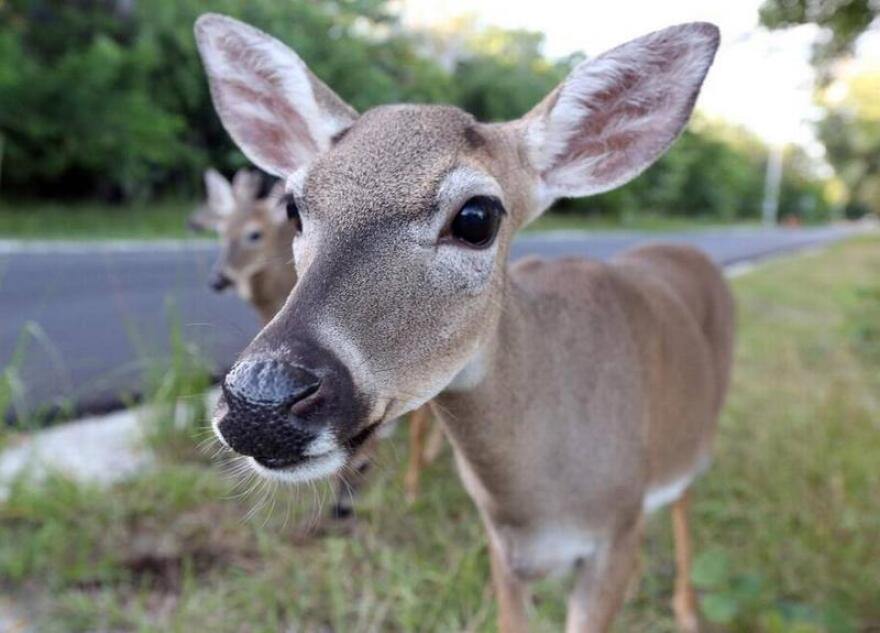U.S. Fish & Wildlife officials Thursday evening faced a crowd of Keys residents strongly opposed to removing the Key deer from the Endangered Species List.
"There has been no final decision to de-list the key deer," said Roxanna Hinzman, field supervisor at the U.S. Fish & Wildlife Service ecological service branch in Vero Beach.
News that the species was being considered for de-listing under a three-year workplan met with opposition from local residents and national environmental groups.
"I find it unfathomable that a species that only exists in one place at sea level could possibly even be in danger of being de-listed," said Kim Stamps, who runs a tour company that takes people to photograph and learn about the deer.
Key deer were hunted almost to extinction in the early 20th century. The National Key Deer Refuge was founded in the 1950s and they were added to the Endangered Species List in 1967.
They are rarely hunted now, but still are killed by cars and face challenges from habitat loss — which could be accelerated by sea level rise. Hinzman said the population had reached an estimated 1,000 animals a few years ago, before the "double whammy" of a screwworm epidemic that killed more than 100 deer and a direct hit from Hurricane Irma.
"We're expecting the population to rebound," she said. "They're a subspecies of the whitetail deer and they're very resilient."
Hinzman said release of a species status assessment has been delayed while the Fish & Wildlife Service evaluates a review on the report about the impacts of climate change from the U.S. Geological Survey.
"Climate change science and sea level rise science has really advanced and changed a lot over the last couple of years while we've been doing this process," she said.
If the deer were to be de-listed, they would still be protected by the state of Florida and the National Key Deer Refuge would continue, she said.
"The refuge would still be there. They'll still be protecting key deer and all of the imperiled species that occur on the refuge," she said.
The primary difference would be removing the requirement that other federal agencies are required to consult with U.S. Fish & Wildlife Service on any actions that can affect an endangered species.
She said the agency's decision on whether to move forward with de-listing should be published in the Federal Register within a year. Then the public would have 60 days to comment.
Diana Umpierre from the Sierra Club said the process has not been transparent so far — and that even considering de-listing was wrong.
"To think of protecting them less instead of protecting them more, instead of putting more money into the things that they need to do to make sure they have more protection, more monitoring, it's just insane," she said.






